Category: Latter-day Saint Thought
-
What Conditions Might Generate a Social Preference for Polygamy?
Guest post by Paul Burnham What Conditions Might Generate a Social Preference for Polygyny? Introduction During the occasional discussions of polygyny in Church literature and on the Bloggernacle, I see two competing narratives—a religious narrative and a romantic narrative. In the religious narrative, God’s will must always prevail and on occasion His will has…
-
Your Reactions to Church Yesterday, 11/2
What did you notice in Church yesterday? How did you react? Think differently? This is the latest invitation for reactions to local meetings, continuing the spirit of my post on September 25th about how we can take what happens in Church meetings—sermons, lessons and anything else—and enter a conversation with them, magnifying what was said…
-
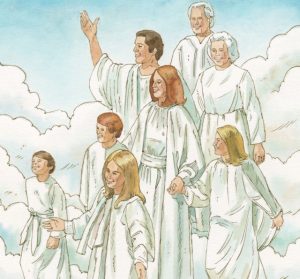
CFM 11/10-11/16(D&C 129-132): Poetry for “I Have Seen Your Sacrifices in Obedience”
This lesson can be both difficult and exulting. Our LDS understanding of the next life both inspires because of the idea that our relations have an eternal permanence, and troubles many of us because of what we don’t understand about polygamy and the details of how the multiple relationships we begin on earth translate into…
-
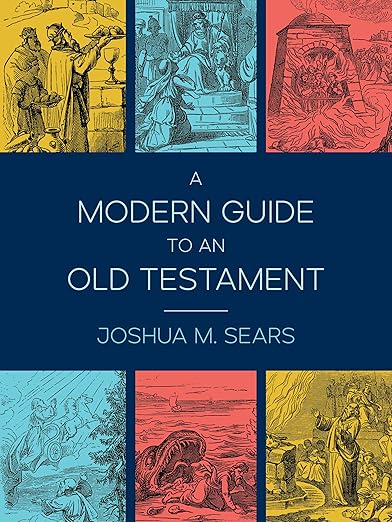
Of Hurdles and Covenants: A Review of Joshua M. Sears’s A Modern Guide to an Old Testament
For many Latter-day Saints, the annual Come, Follow Me journey through the Old Testament can feel like a daunting pilgrimage. It is a vast and often alien landscape, filled with archaic language, bewildering poetry, and troubling cultural norms that can create a significant chasm between the modern reader and the ancient text. While numerous commentaries…
-
Vocabulary lesson
die Dolchstoßlegende. The myth that the German Empire could have won World War I if its army, like Siegfried in the Nibelungenlied, had not been stabbed in the back by traitorous enemies, often claimed to be Jews, rich industrialists, or socialists. The German ß character can be replaced by a double -ss- in English contexts.…
-
Your Reactions to Church Yesterday, 10/26
What did you notice in Church yesterday? How did you react? Think differently? This is the latest invitation for reactions to local meetings, continuing the spirit of my post on September 25th about how we can take what happens in Church meetings—sermons, lessons and anything else—and enter a conversation with them, magnifying what was said…
-

CFM 11/3-11/9(D&C 125-128): Poetry for “A Voice of Gladness for the Living and the Dead”
Baptism for the Dead is one of the beliefs that make the LDS Church distinctive among religions today. Frequently discussions with non-Mormons focus on what Paul meant in 1 Cor. 15:29 while ignoring the broader question that our doctrine addresses with proxy ordinances: If baptism is required for everyone, then what about those who passed…
-

Masculine Fidelity and Sexual Propriety in the Media
Often our cultural paradigms for fidelity and sexual propriety are, frankly, seemingly low-testosterone, low-sociosexuality cases. Of course Mr. Rogers is going to be faithful to his wife (although I don’t claim any knowledge of his T-count). Or all those skinny Mr. Darcy-type, regency period love interests that Mormon women are obsessed with (another post for…
-
The New Apostolic Reformation and you
You should probably pay attention to a religious movement that shares some of our beliefs and uses some similar terminology, wants to control key institutions of society, and includes Donald Trump’s spiritual advisor.
-
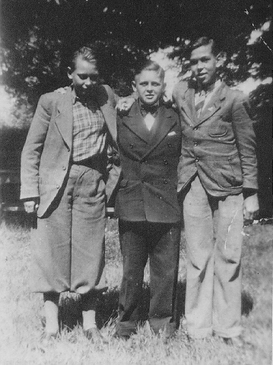
“Truth and Treason” and Today
[WARNING: the following includes some things that maybe considered spoilers by those who haven’t seen the film.] I’m not sure how well it is known, but the film “Truth and Treason”, currently in theaters, tells the story of a young LDS man in Hamburg, Germany in 1942. Helmuth Hübener’s story has been told before, perhaps…
-
Your Reactions to Church Yesterday, 10/19
This is the latest invitation for reactions to local meetings, continuing the spirit of my post on September 25th about how we can take what happens in Church meetings—sermons, lessons and anything else—and enter a conversation with them, magnifying what was said or adding what we think. The point here is that no matter how…
-

CFM 10/27-11/2(D&C 124): Poetry for “A House unto My Name”
The phrase “A House unto My Name” is easy to connect to the Temple. But section 124 isn’t just about building a temple — in 1841 the Kirtland Temple is far away from the bulk of Church members and the Nauvoo Temple has only recently had its groundbreaking. Instead, we might think of house in…
-

The Caretaker Behind the Curtain
I often see exMos refer to the line from the Wizard of Oz, “pay no attention to that man behind the curtain!” in reference to a church culture that doesn’t want the membership to focus on seemingly problematic aspects of the church’s claims. Though I’m not in the same place as exMos, I do actually…
-
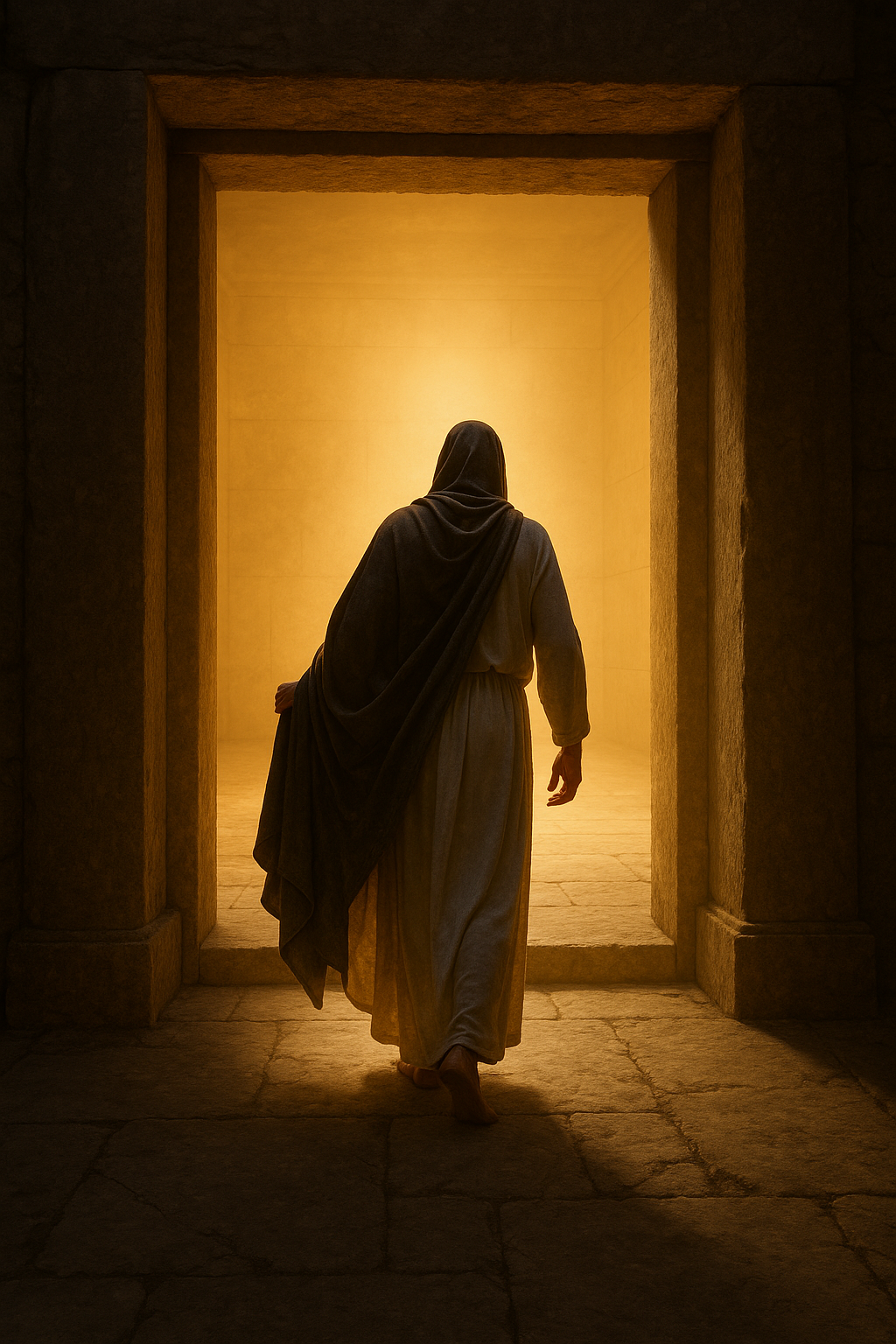
The Ancient Greek Endowment
I’ve already written at great length about how the Latter-day Saint temple ceremonies tap into various primal archetypes, and how that might relate to its Masonic connections. Again, the point isn’t to score some kind of point in favor of the Church’s truth claims, but, in a sense more interestingly, to appreciate the universality and…
-
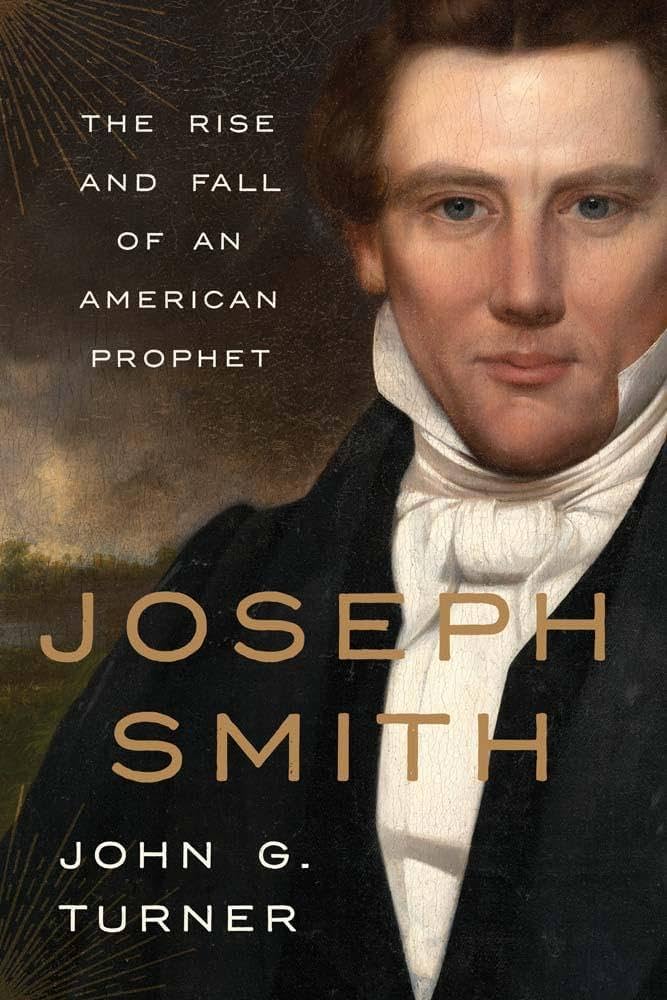
Review of Turner’s biography Joseph Smith: The Rise and Fall of an American Prophet
A Book Review for Times and Seasons of the First Major Biography of Joseph Smith in Twenty Years, Wherein I Demonstrate My Own Longwindedness in Contrast to the Author’s Skillful and Admirable Concision
-
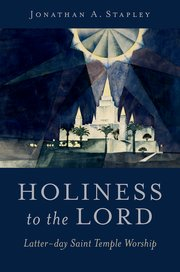
Holiness to the Lord: Latter-day Saint Temple Worship, a Review
Holiness to the Lord: Latter-day Saint Temple Worship, by Jonathan A. Stapley, is a rich exploration of the history, symbolism, and function of Latter-day Saint temples. The book traces temple development from the earliest Kirtland and Nauvoo structures to present-day edifices. Each chapter addresses both the physical details—materials, floor plans, artwork—and the spiritual purposes, including…
-
Your Reactions to Church Yesterday, 10/12
This is the latest invitation for reactions to local meetings, in the vein of my post on September 25th about how we can take what happens in Church meetings—sermons, lessons and anything else—and enter a conversation with them, magnifying what was said or adding what we think. I’m convinced that even if the speaker or…
-

CFM 10/20-10/26 (D&C 121-123): Poetry for “O God, Where Art Thou?”
Adversity is rooted in the problem of evil—if God is good, then why does he allow evil to exist? Or if “man is that he might have joy,” why is there so much suffering in life? And worse, it often seems like for some the suffering is “but a moment”, while for others the suffering…
-
The Caretaker Model and Divine Providence
I’ve seen comments (RLD on here especially) note it being fortuitous to have a president who was a doctor during the pandemic. As we all know, our leaders shut down and meeting pretty fast after the pandemic hit the US. No doubt opinions vary, but I think most here view the shutdown of our meetings…
-
The Priesthood Ban and Our Leadership Theology
By “Leadership Theology” I mean the common declaration that we make about our leaders, presidents in particular, as the mouthpiece of God, God not allowing them to lead the church astray, etc. For example, over the last few years, our leaders have made a number of structural changes and pointed to the changes as evidence…
-

CFM 10/13-10/19 (D&C 115-120): Poetry for “His Sacrifice Shall Be More Sacred unto Me Than His Increase”
Sacrifice is a key gospel concept, and as such is also a key concept for life. Whether the it involves one person giving up something to help others or simply the individual giving up something for his own benefit, sacrifice is always about making decisions that balance one benefit or good against another. So we…
-
Your Reactions to Church Yesterday, 9/28
A few days ago I posted about how we can take what happens in Church meetings—sermons, lessons and anything else—and enter a conversation with them, magnifying what was said or adding what we think. I’m convinced that even if the speaker or teacher is poorly prepared, we can still find elements in what is said…
-

CFM 10/06-10/12 (D&C 111-114): Poetry for “I Will Order All Things for Your Good”
If things have been ordered for our good, do the things look like they have been ordered or arranged? This week’s Come Follow Me lesson title implies that what happens in our lives is meant to help us both now and in the hereafter. The statement “I will order all things for your good” is…
-
Conservative pain
An intrinsic problem in liberal and progressive-dominated professions such as academia and journalism is systematically overlooking or diminishing conservative pain. I’m not asking for sympathy for myself here, as I’m not a conservative. Each day I watch in horror as much of what has made my life pleasant or possible is destroyed and generation-spanning work…
-
Churchmen and Administrators: An Attempted “Coup” against President Woodruff, 1887-89
Though Mormonism after Joseph Smith isn’t my expertise, I do think that a story that demonstrates conflict in church leaders’ tendency to appoint the church’s best administrators into the first presidency is the attempted “coup” against Wilford Woodruff in 1887. I put coup in quotes since some may object to that term, but it seems…
-
The Ethics of Talks and Lessons at Church
When was the last time someone told you how much they liked Church on Sunday? Or what made a Sacrament Meeting really great? Or what in a lesson touched them, made them cry or gave them a new way of thinking? I often hear complaints about Church these days. If it isn’t that the Sacrament…
-

CFM 9/29-10/05 (D&C 109-110): Poetry for “It Is Thy House, a Place of Thy Holiness”
I like this photo of the Bangkok Thailand Temple. I know many people will see in it an island of good among a sea of chaos and evil. I can’t disagree more with that view—most of humanity doesn’t live in the stereotypical suburban pastoral nowhere favored by the world, and where they do live is…
-
Mental Illness at Church
I had so many plans for this post series, so it is heavy heart and not a little irony that I have had to cut it short due to two mental health crises in our family which have left me depleted. I’ve tried to think of what I should say as a final post on…
-
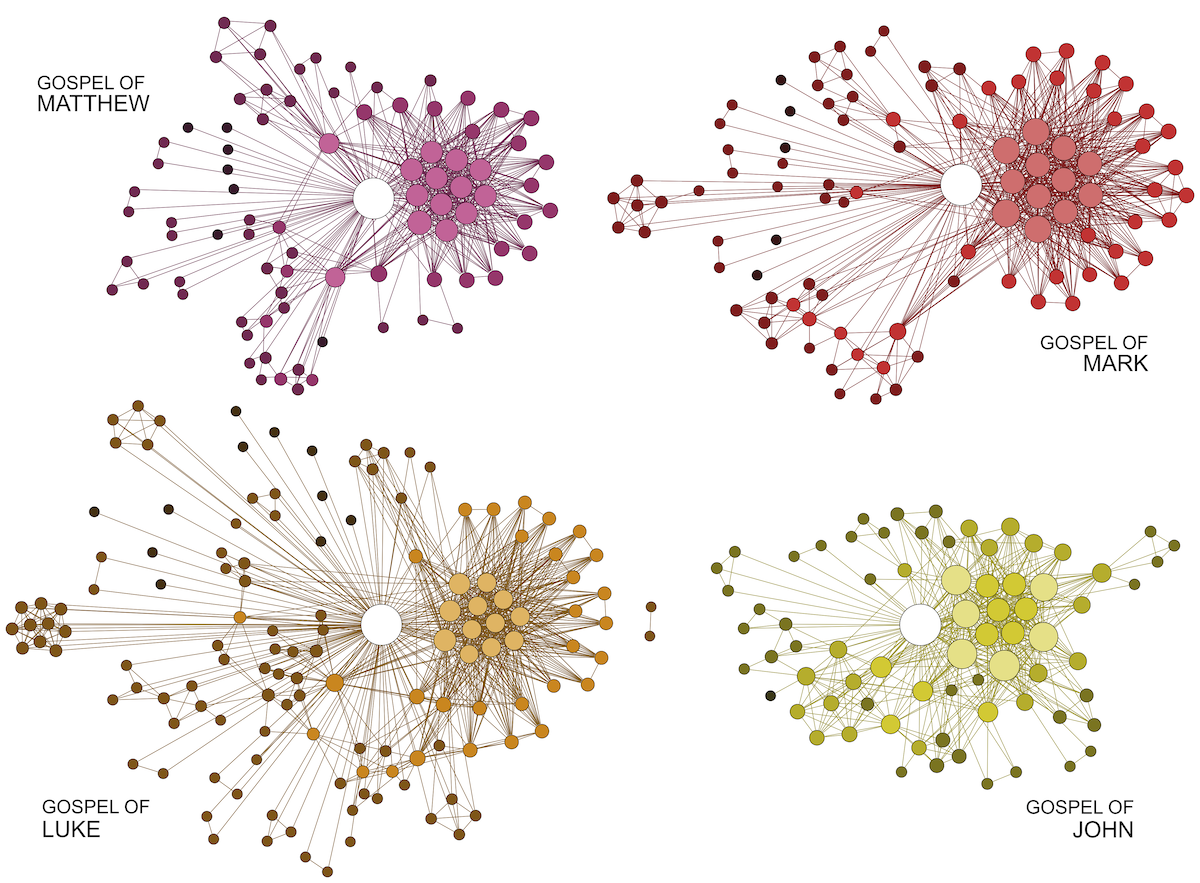
CFM 9/22-9/28 (D&C 106-108): Poetry for “The Order of the Son of God”
Like it or not, our lives are built of structures. We organize our days according to everything from natural events, like the rising and setting of the sun and our own biological rhythms, to the hours of the clock that our society has assigned to the day, to the needs we have to coordinate with…
-
The First Three: Joseph Smith, Brigham Young, and John Taylor
I want to continue discussing the issue of prophets and administrators by giving a quick overview of some observations of the church’s first three presidents, and will talk about later presidents in future posts.
